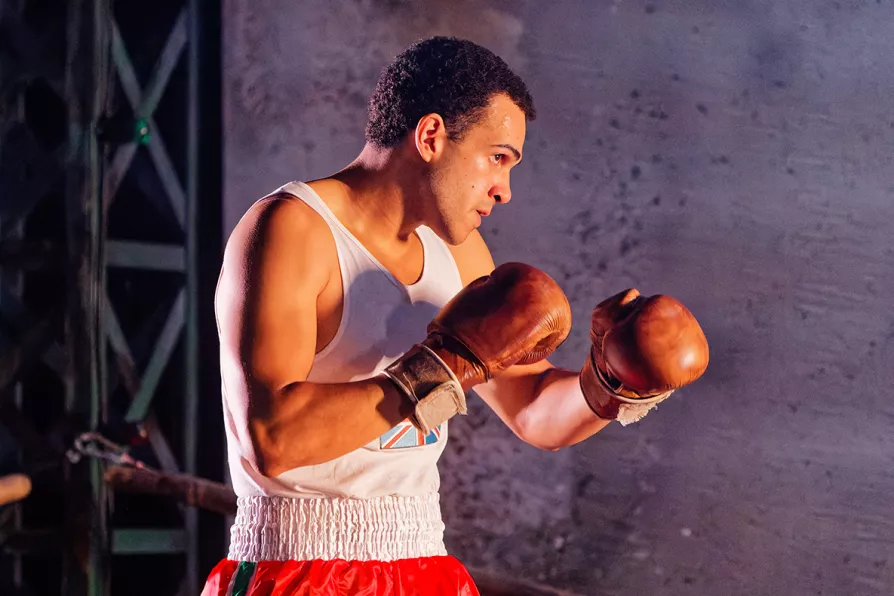
 Simeon Desvignes as Cuthbert Taylor in Theatr na nOg's The Fight
[Dimitris Legakis Athena Picture Agency]
Simeon Desvignes as Cuthbert Taylor in Theatr na nOg's The Fight
[Dimitris Legakis Athena Picture Agency]
CUTHBERT TAYLOR was born in Merthyr Tydfil in 1909. A superb amateur boxer, he competed for Great Britain at the 1928 Olympic Games in Amsterdam in the flyweight division. Given that he was born with brown skin at this point in Britain’s social history, the boxing ring was the least of his worries.
Racism has long informed and plagued British culture in all aspects. To be black or brown was designated to be less than on these shores for generations. The country’s sordid legacy of slavery and empire made it so, yet young men such as Taylor refused to let the colour of their skin make them feel less than.
Regardless, the colour bar was a shameful part of the reality of professional boxing in his era, which both he and Manchester’s Len Johnson — previously featured in this column — found to their cost.

The outcome of the Shakespearean modern-day classic, where legacy was reborn, continues to resonate in the mind of Morning Star boxing writer JOHN WIGHT












